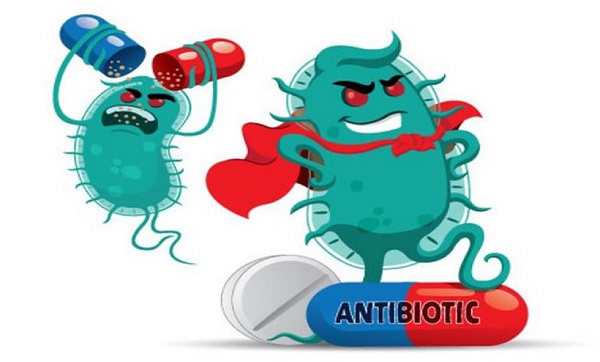
As the world becomes increasingly interconnected, a silent yet formidable health crisis looms: antimicrobial resistance (AMR).
Once a background issue in public health discussions, AMR has emerged as a pressing challenge with the potential to reverse decades of medical progress.
The World Health Organisation (WHO) defines AMR as the situation where bacteria, viruses, fungi and parasites no longer respond to antimicrobial medicines.
As a result, antibiotics and other antimicrobial medicines become ineffective, making infections harder, or even impossible, to treat, which increases the risk of disease spread, severe illness, disability, and death.
From Nigeria to the U.S.A. and from rural villages to bustling cities, AMR affects everyone, yet it often goes unacknowledged by the public.
Experts explain that humans have co-evolved with microbes for millions of years, with the human body providing a safe environment for thousands of microbial species to thrive.
In return, these microbes offer humans many benefits, such as protection against harmful organisms and the regulation of various physiological processes.
A healthy and balanced microbiome is crucial to human well-being.
However, even with co-evolution, infectious diseases remained fatal until the advent of modern antimicrobial drugs, such as antibiotics, in the 19th century.
These drugs revolutionized human medicine, saving hundreds of millions of lives and accelerating economic development by reducing human suffering and illness.
The COVID-19 pandemic has taught humanity not to ignore warnings about health threats. Scientists have warned about the dangers of antimicrobial resistance for decades.
In 2019, WHO declared AMR one of the top 10 global public health threats, while the United Nations estimated that by 2050, AMR could cause as many as 10 million deaths annually.
WHO further reported that in 2019 alone, drug-resistant infections were responsible for nearly five million deaths worldwide.
The Nigeria Centre for Disease Control and Prevention (NCDC) explains that AMR occurs when bacteria, viruses, fungi and parasites evolve and no longer respond to medicines like antibiotics and antivirals, designed to kill them.
This resistance renders standard treatments ineffective, leading to persistent infections, longer hospital stays and increased mortality.
According to NCDC’s lead on AMR, Dr. Tochi Okwor 64,500 deaths in Nigeria are directly attributable to AMR, while 263,400 deaths are associated with it.
Okwor emphasised the urgent need for enhanced surveillance, better hygiene practices and stricter control over antibiotic use across human and animal health sectors.
“AMR, fueled by the misuse of antibiotics in hospitals, farms, and communities, remains a critical issue. Taking antibiotics when they’re not needed, or buying them without a prescription, is driving resistance. We are losing ground in this fight, and the consequences are deadly,” she warned.
A mother, Mrs. Abigal Mekaniki from Yamu Community in Kwali area council of the FCT, experienced firsthand how AMR can turn a routine infection into a life-threatening situation.
Mekaniki shared that after delivering her second child via caesarean section at the Kwali General Hospital, she developed a post-surgical infection. The standard antibiotics prescribed by her doctors failed to work.
“After weeks of suffering, multiple hospital transfers, and rising medical bills, I was finally put on a stronger, more expensive antibiotic that saved my life. I didn’t know much about antibiotic resistance before, but now I understand how serious it is. It almost cost me my life,” she recalled.
This scenario plays out in hospitals around the world. The root of the problem often stems from the overuse and misuse of antibiotics, along with poor infection control measures.
WHO director-general, Dr. Tedros Ghebreyesus recently highlighted the growing global threat of AMR:
“We are facing a future where simple surgeries, childbirth, and even minor infections could become life-threatening due to antimicrobial resistance. This is a fight we cannot afford to lose,” Ghebreyesus said.
Nigerian researchers are collaborating with international partners to explore alternative therapies, including bacteriophage treatments, which show promise in addressing bacterial infections that no longer respond to conventional antibiotics.
A microbiologist, Dr. Adeyemi Bakare explained: “Phage therapy is one potential solution, but much work remains before it can be widely adopted.”
Investigations show that in many FCT communities, antibiotics are seen as a cure-all for every ailment. From colds to minor fevers, people often turn to antibiotics, even when unnecessary.
The misuse is aggravated by easy over-the-counter access to these drugs in countries like Nigeria.
A pharmacist, Dr. Ibrahim Musa explained: “Patients often demand antibiotics for viral infections like the flu, which do not respond to these drugs. Doctors sometimes prescribe them to appease patients, and in rural areas, people self-medicate without proper diagnoses.”
According to Musa, counterfeit and substandard antibiotics are rampant in bustling drug markets, further fueling resistance.
“Fake drugs not only fail to treat infections but also contribute to bacteria developing resistance,” he said.
AMR does not affect all Nigerians equally. Rural communities often lack access to proper healthcare and rely heavily on over-the-counter drugs, making them the most vulnerable.
A public health advocate, Dr. Chioma Umeche said that the intersection of poverty and poor healthcare access exacerbates the AMR problem in Nigeria’s underserved communities.
Nigeria has made significant strides in addressing AMR through the development of a One Health National Action Plan (NAP), which involves collaboration across multiple sectors to reduce the spread of AMR.
However, critical areas still need improvement. Financial limitations remain a significant challenge to Nigeria’s ability to fully implement its AMR NAP.
Coordinator of the Africa Health Budget Network (AHBN), Dr. Aminu Magashi underscored the need for increased financial investment in AMR strategies.
“Nigeria must prioritise AMR by funding initiatives, enforcing regulations on antimicrobial use, and expanding public awareness campaigns,” he said.
A public health expert, Dr. Gabriel Adakole warned that without action, the country could face a future where even minor surgeries become high-risk, and diseases once controlled by antibiotics, like tuberculosis, spiral out of control.
“The window for preventing this crisis is closing fast, and the consequences could be devastating for public health,” Adakole said. (NAN)

